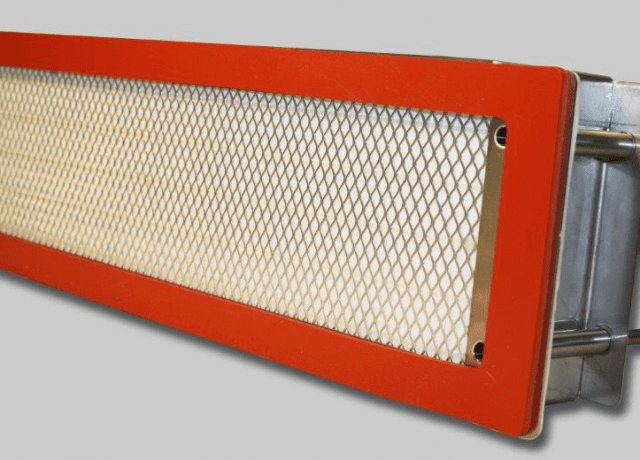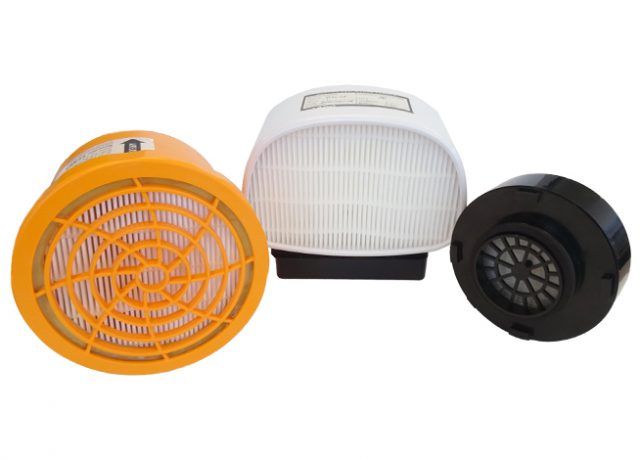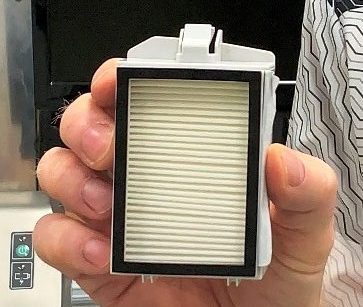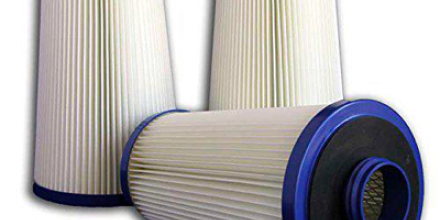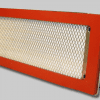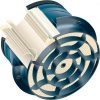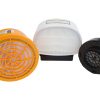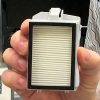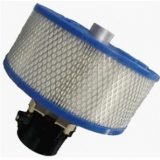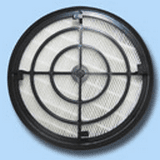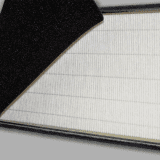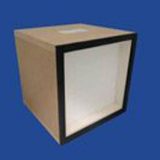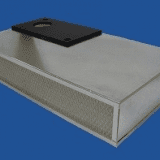APC engineers designed an air filter modelling program for use with AutoCAD and SolidWords to produce 3D fluid dynamic imaging to help determine optimum filter design and performance efficiencies.
Custom HEPA Air Filter Manufacturer
Original equipment manufacturers (OEM’s) that require HEPA filters often find standard size or “off-the shelf” filters do not provide equipment performance, filter performance and filter life as expected.
OEM’s need a HEPA filter that’s designed specifically for their piece of equipment to provide an optimum and measurable level of filtration, pressure drop, service life and equipment performance.
APC Filtration Inc. is an ISO 9001:2015 certified manufacturer providing over 40 years experience in critical air filter design, engineering, manufacturing, filter testing and appliance/equipment integrity testing for global OEM’s of industrial, commercial and household equipment.
With manufacturing and testing locations in the United States, Canada, and China, APC has a very diverse and global client base to handle any air filtration application you can throw at us.
While HEPA filters are excellent filtration systems for capturing and removing sub-micron particles from the air, they do not capture odours, gases or VOC’s. Capturing these elements requires the use of GAC (granular activated carbon) and other additives.
DESIGNED FOR YOUR APPLICATION
APC engineers need to understand your equipment, application and operating parameters intimately in order to design a custom air filter. We created an RFQ process to obtain every critical design feature needed to provide optimum filter and equipment performance including cost expectations and delivery timelines.
Each filter project undergoes a step-by-step ISO 9001:2015 ISO 900:2015 process as follows:
- RFQ Initiation
- RFQ Engineering Approvals
- RFQ Customer Approval
- Product Design and Engineering
- Customer Drawing Approval
- SRFQ Process
- CSR Costing
- Customer Quote & Approval
- Tooling & Prototype Order
- QC Samples Submitted for Approval
- QC Samples Approved by Customer
- Order Received
WHAT IS A HEPA FILTER?
The acronym “HEPA” stands for High-Efficiency Particulate Air. HEPA filters are designed, manufactured, tested and certified to meet US and European test standards. Filter claims stating “HEPA-Type” or “HEPA-like” do not meet the United States Department of Energy (DOE) or European BS EN1822 test standards.
According to DOE regulations, a HEPA filter must remove a minimum of 99.97% of 0.3-micron particles that passes through the filter. Particles of this size are the Most Penetrating Particle Size (MPPS), which is the most difficult size to filter.
HEPA filter media’s include sub-micron, wet-laid glass and/or meltblown polypropylene electrostatically charged fibers arranged in non-woven format to capture fine particles.
Their ability to capture many pathogens, contaminants, and other potentially harmful elements from the air have made HEPA filters an essential requirement for equipment and/or environments that require critical air filtration.
HEPA FILTER VS. STANDARD AIR FILTER
A common misconception is that HEPA filters work like standard air filters. Standard air filters work like a sieve capturing particulate in the depth of the filter media. Essentially, non-woven fibers create a tortuous passage to airflow. Particles larger in size than the holes in standard non-woven filter media’s are captured in the depth of the filter media and stored. This is not how HEPA filters work.
HEPA filters capture particles through three interrelated processes:
- The first is interception. This occurs when a particle is following the flow of the air and comes within very close range of a fiber. The particle then sticks to the fiber.
- The second is impaction. This occurs when larger particles hit the fibers directly, embedding into them.
- The final is diffusion. As the smallest particles flow through the filter, they can collide with gas molecules. When this happens, the particles slow down or stop, which increases the chance the filter will capture them via interception or impaction.
From the Filter Design phase, CAD files are sent to a 3D printer that produces prototype filter parts for test fitting, an essential step in our filter design process. In certain cases, working filter prototypes can be manufactured in seven days for filter testing in a lab environment or real-world testing
APC lab technicians perform a variety of prototype filter tests to verify filter design, function and performance meet all requirements. Tests performed include air filter leak testing, fractional efficiency (FE) testing and air filter certification. In cases where clients submit equipment for prototype filter design, fitment and testing, their equipment is fitted with the filter for integrity testing approvals and equipment certification. Equipment integrity testing insures both your custom HEPA filter and your equipment meets the air filtration standard and integrity for your application.
In certain cases, field testing prototype and/or Pre-Production QC filters is required prior to filter production approvals. This is a lengthier process to obtain filter design approvals prior to production however field-testing allows clients to perform real-world testing in various environmental conditions that cannot be duplicated in a lab environment.

